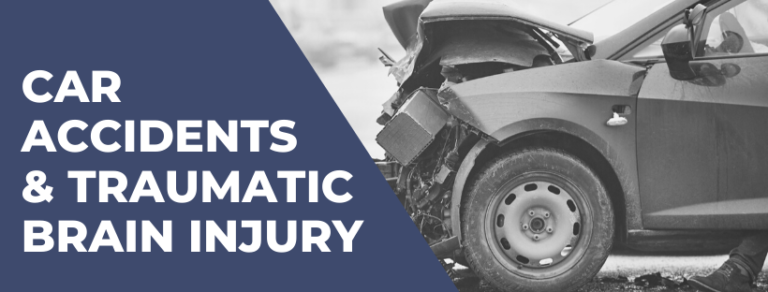Whiplash is one of the most common car accident injuries. As experienced personal injury attorneys, we’ve seen our fair share of whiplash claims and know first-hand how debilitating they can be. Although whiplash injury claims are not rare, many roadblocks can affect your case and proper compensation after an accident.
In this blog, we will explain whiplash and how a personal injury lawyer can navigate the legal proceedings, so you have support for medical bills and loss of wages, amongst other damages you may incur. By understanding the claims process and your rights, you can take the necessary steps to recover while knowing someone is fighting for the compensation you deserve.
What Is Whiplash?
Whiplash is a neck injury that typically occurs when the head is suddenly jolted back and forth, often as a result of a car accident. This rapid movement can strain or tear the neck’s muscles, ligaments, and tendons, leading to pain and discomfort.
How Do You Know If You Have Whiplash?
If you were in an accident and felt your head jerk quickly forward and backward, like the cracking of a whip, you may have incurred whiplash. It’s sustained not just in auto accidents but in sports injuries, too. The most common symptoms include:
- Neck pain and stiffness
- Headaches, often starting at the base of the skull
- Dizziness or fatigue
- Pain in the shoulders, upper back, or arms
- Reduced range of motion in the neck
- Tingling or numbness in the arms.
While some symptoms appear immediately after the accident, others may take hours or even days to develop, so it’s crucial to seek medical attention as soon as possible.
If left untreated, whiplash can lead to chronic pain and long-term complications, making it important to act quickly and document your condition for both medical and legal purposes.
How Long Does Whiplash Last?
The recovery time for whiplash depends on various factors. The severity of the injury, whether you sustained other injuries during the event, a person’s age, and overall health all play a part. We’ve outlined what to expect with mild and severe cases to give a broad overview of how long whiplash lasts.
Case Type | Recovery Duration | Details |
Mild Cases | A few days to weeks | Symptoms like neck pain and stiffness typically improve with rest, physical therapy, and over-the-counter pain relief. |
Moderate to Severe Cases | Several months (or longer for chronic cases) | May involve ligament, tendon, or nerve damage. Chronic whiplash can persist for six months or longer, requiring long-term treatment and possibly surgery. |
After an assessment, a medical professional can give more accurate recovery times. If you feel your neck is damaged, even without severe pain, it’s important to see a professional as soon as possible.
If you think you have sustained a neck injury in an accident, for your health — and from a personal injury standpoint — you should make sure you do the following:
- Seek Medical Attention: Even if your symptoms seem mild, it’s important to get checked out by a healthcare professional. They can confirm your diagnosis and provide treatment.
- Document Your Symptoms: Report any pain, stiffness, headaches, dizziness, or other symptoms you experience. This documentation will be helpful for your medical records and potential insurance claims.
- Inform Your Insurance Company: Report your injury to your insurance company as soon as possible. Provide them with accurate details about the accident and your symptoms.
- Consult with a Personal Injury Attorney: If you were not at fault or only partially at fault, you should contact a lawyer. They can help guide you through the claims process and ensure you receive the compensation you deserve.

Understanding Whiplash Claims
Just as the severity of the injury can affect recovery times, it can also influence personal injury claims. Beyond the physical damage, there are many other considerations, including how the event unfolded, its long-term effects on a person’s life, and how the accident was reported to medical professionals and insurance companies.
What Does Personal Injury Cover for Whiplash?
It’s never a straightforward answer when people ask, “How much did you get for a whiplash injury?” If you have dealt with medical bills in the past, you may have a rough idea of what kind of compensation could be awarded. For minor whiplash injuries, settlements could fall somewhere between $2,500 and $25,000 depending on medical costs, loss of wages, and more. In severe cases where all these factors increase, settlements could easily exceed $50,000.
1. Medical Expenses
Medical bills are often the largest and most immediate costs associated with whiplash. A claim can include emergency care such as initial assessments and treatment following the accident, follow-up visits with doctors or specialists, physical therapy to restore mobility and reduce pain, prescription medications, and anticipated long-term care for chronic conditions.
2. Lost Wages
Whiplash can prevent you from working during your recovery period. Compensation for lost income covers time missed due to medical appointments or being unable to perform your job, as well as future earning potential if the injury results in long-term or permanent limitations.
3. Pain and Suffering
The physical pain and emotional distress caused by whiplash are often eligible for compensation. This includes discomfort from the injury itself, the mental toll of reduced mobility, and potential long-term effects like chronic pain or post-traumatic stress.
4. Property Damage
The claim may include repair or replacement costs if the accident that caused your whiplash also damaged your vehicle or other personal property.
5. Additional Expenses
Other costs related to the accident, such as transportation to medical appointments or hiring help for household tasks during recovery, may also be covered.
Personal injury claims aim to provide comprehensive compensation for the full impact of your whiplash injury, ensuring you’re not left covering costs you didn’t cause.
Understanding Fault in South Carolina Whiplash Cases
Determining fault is a critical part of pursuing a whiplash claim in South Carolina. The state follows a modified comparative negligence system, which means the compensation you can recover depends on your degree of fault. If you’re found to be 50% or more at fault for the accident, you’re not eligible to receive any damages. Here’s what you need to know about proving fault and how it impacts your claim:
Establishing Fault
To prove fault in a whiplash case, you need to demonstrate the other party acted negligently. This typically involves showing:
- Duty of care: The other party had a responsibility to act safely, such as obeying traffic laws.
- Breach of duty: They failed to meet this standard, for example, by speeding or driving distracted.
- Causation: Their actions directly caused the accident and your injuries.
- Damages: You suffered losses, such as medical bills or lost wages, as a result.
Evidence in Fault Determination
Several forms of evidence can support your claim, so it’s essential to gather as much information as possible, including:
- Police report that documents the accident and assign preliminary fault.
- Eyewitness statements that corroborate your account of the incident.
- Vehicle damage analysis helps reconstruct how the collision occurred.
- Black box data from vehicles can reveal speed, braking, and other driving behaviors.
- Medical records linking your injury to the accident.
Shared Fault Scenarios
In some cases, both parties may share fault for the accident. For example, if you were rear-ended but were not wearing your seatbelt, the other driver might still be primarily at fault, but your compensation could be reduced for contributing to the severity of your injuries.
How Fault Impacts Compensation
In South Carolina, the principle of modified comparative negligence is codified in S.C. Code Ann. § 15-38-15. This statute addresses the reduction and apportionment of damages based on the plaintiff’s and other parties’ negligence and outlines how damages should be adjusted according to each party’s degree of fault.
Understanding fault is essential to building a strong whiplash case. An experienced personal injury attorney can help gather evidence, challenge unfair fault claims, and ensure you receive the compensation you deserve.

What Can a Personal Injury Attorney Do?
A personal injury attorney is crucial in helping you through the complex process of a whiplash claim. They provide guidance to ensure you receive fair compensation for your injuries and associated damages. Here’s what they can do to support you:
1. Evaluate Your Case
Your attorney will closely examine the specifics of your accident and injuries to determine the strength of your claim. They’ll assess potential compensation based on factors like medical bills, lost wages, and pain and suffering. The Clardy Law Firm offers free case evaluations and never takes payment unless there is a successful outcome.
2. Gather Evidence
Building a strong case requires detailed evidence. As we’ve explained with South Carolina’s at-fault laws, it’s important to prove the majority of the fault was not yours to receive compensation. Your attorney will collect:
- Medical records and statements from doctors linking your injuries directly to the accident.
- Police reports and accident reconstructions.
- Eyewitness testimonies and, if available, data from black boxes in vehicles.
3. Handle Communication
Dealing with insurance companies can be a long and complicated process. As they aim to pay out as little as possible, you will need a thorough case and someone who knows the process. Your attorney will:
- Manage all negotiations with insurers to get you a fair settlement.
- Ensure your statements are consistent and do not harm your claim.
- Shield you from tactics designed to reduce or deny your compensation.
4. Establish Liability
Proving negligence is key to your case. Your attorney will identify who’s at fault and build a legal argument to show how their actions caused your injuries. They can investigate the event and speak to specialists and law enforcement to prove who was at fault.
Your attorney will communicate and negotiate with the other party’s legal team to discuss the details of your case. This involves presenting your evidence, discussing the facts, and addressing any discrepancies or disputes. They will work to ensure that your interests are represented fairly and advocate for the best possible outcome in your whiplash claim.
5. Negotiate Settlements
Attorneys are experienced in negotiating with insurance companies and opposing legal teams. Because whiplash is common, insurance companies often try to downplay the severity and lower compensation. After gathering the evidence, a personal injury lawyer will fight for a settlement that covers all your financial and emotional losses. If the offer isn’t fair, they won’t hesitate to take the case to court.
6. Represent You in Court
If your case goes to trial, your attorney will represent you in court to present the evidence and argue persuasively on your behalf, ensuring your rights are protected and your story is effectively communicated to the judge or jury. They will cross-examine witnesses, challenge opposing evidence, and strive to achieve the best possible outcome for your case. In summary, they will:
- Present evidence and expert testimony.
- Cross-examine witnesses.
- Fight for the compensation you need to recover.
7. Provide Legal Guidance
Understanding state laws, deadlines, and the complex legal process is essential. Your attorney will help you through every step, making sure you don’t miss important deadlines or make costly mistakes. Having a personal injury attorney by your side means you’ll have a dedicated advocate who understands the ins and outs of whiplash claims to secure the compensation you deserve.
A Law Firm That Fights for You
At The Clardy Law Firm, we take every case seriously and give it the unique attention and care it deserves. Even if you’ve sustained mild whiplash, it can cause long-term effects with severe financial consequences. Don’t leave your compensation to chance — reach out to us today to ensure your rights are protected, and you receive the support you need for a full recovery. Book a free consultation today, and let us help you take the next step.





